September 17, 2013
To waste pickers and allies,
We are happy to share with you the 7th edition of the Global Alliance of Waste Pickers newsletter, “Struggles and Victories: Waste Pickers on the Frontline.” In this edition, an update from Nigeria describes the advances of an organizing process in seven target cities. There’s been a lot of news from India, with the continued campaign for the proper disposal of sanitary pads, and another campaign to demand justice for the family of waste picker Manwara Begum, unjustly beaten and tortured by police and neighbors. Also in India, waste pickers marched many miles in the rain to protest exploitation by private contractors. In the Philippines, workshops were held in several cities to promote social and legal recognition of waste pickers.
There’s also been a lot of news from waste pickers in Latin America. Waste pickers in Montevideo and Buenos Aires held protests against exclusionary municipal policies and actions. In July, waste pickers in the Dominican Republic participated in their first conference, and in August, the Latin American Network (Red Lacre) held a week-long meeting with recicladores from 17 countries. Also, please take a minute to sign important petitions from El Alamo Cooperative, the Global Alliance for Incinerator Alternatives (GAIA) and the National Movement of Waste Pickers in Brazil (MNCR). Finally, check out wonderful videos on waste pickers organizing in Uruguay, Colombia and Brazil.
In solidarity,
Deia, Lucia, Pablo
Communications support team for GlobalRec
Table of contents
Africa
Asia
Latin America
Africa
Nigeria: “An irreversible organizing process has been set in motion” (Nigeria – July 2013)
An update from Women in Informal Employment: Globalizing and Organizing (WIEGO) and the Federation of Informal Workers’ Organizations of Nigeria (FIWON): Coordinators of the WIEGO/FIWON organizing project in Nigeria, which is in its final phase, say there’s been progress in its seven target cities. Meetings among waste pickers became regular with some centers holding meetings once or twice a month. The second capacity building workshop focused on building democratic organizations of waste pickers, methods of engaging other stakeholders and government agencies as well as the general public. The meetings ended with a workshop which provided a template to address challenges faced by waste pickers in the target cities of Lagos, Ibadan, Aba, Port Harcourt, Ilorin, Abuja and Akure. See report summary with photos from the workshops.
Asia
SAFAI SENA: waste pickers marched 12 kilometers in the rain to protest exploitation by private contractors (India – August 2013)
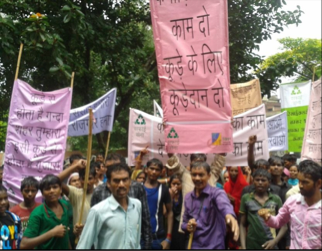
Safai Sena protesting the exploitation and extortion of waste pickers by private contractors. (Photo: Safai Sena)
On August 16, 2013, over 250 waste recyclers of Safai Sena held a protest in front of Ghaziabad Nagar Nigam office. Many of them marched over 12 kilometers despite heavy rains that day. The protest was organized to raise a collective voice against the illegal collection of money by private contractors and exploitation of waste recyclers in Kavi Nagar and Mohan Nagar zones. Over 700 persons from Safai Sena have been working in the City for over 10 years now. Most of them pick waste from the doorsteps of over 18,000 households in Mohan Nagar and approximately 20,000 households in City and Kavi Nagar. Unfortunately, they are being forced to pay bribes by extortionists and over 500 waste pickers have had to pay 400 Rupees per month just to take the waste they have collected from households. Those who do not pay are beaten. Several women have been victims of this extortion racket run under the guise of waste management. Read the full press release with Safai Sena’s demands.
Videos about the health care, education, and financial needs of waste workers in Nepal (Nepal – August 2013)
The PRISM project (Poverty Reduction of Informal Waste Workers) recently published three videos about their work with waste pickers in Nepal. The video “Education brings hope” talks about the transformative effect of access to formal or non-formal education and skills training. The video “Health risks behind the waste” shows the risks waste pickers face in their daily work. The video “Saving for the future” talks about the financial struggles of waste pickers and how borrowing money at high interest rate is often one of the only options to make ends meet. The PRISM project is being implemented in Kathmandu valley by Practical Action in partnership with CIUD and financial support from the European Union.
SWACH: The campaign for proper disposal of sanitary napkins continues! (India – July 2013)
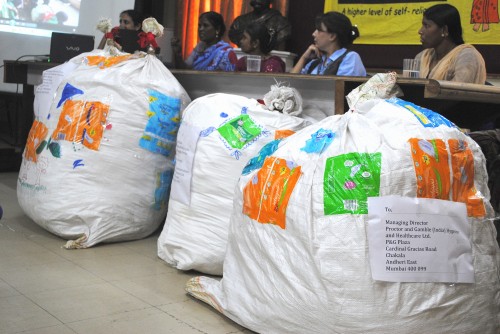
Bags full of used sanitary napkins addressed to companies that manufacture the product. Photo credit: SWaCH.
Used sanitary napkins are a source of many health problems for waste pickers. SWaCH, an independently run waste pickers’ cooperative, put the pressure sending used sanitary napkins back to manufacturers. The campaign worked – officials from companies like Johnson & Johnson, Proctor & Gamble, Hindustan Unilever and Kimberly Clarke Lever met the municipal authorities in April and assured a solution within three months. For the first time in India, a municipal government demanded that sanitary pad manufacturers provide a disposable bag with each pad. But three months have passed since the meeting and no action has been taken by the manufacturers. “We shall continue the campaign and explore other avenues in the matter,” said Malati Gadgil, of SWaCH. You can Support waste pickers in India by signing this letter from SWaCH! and there is also another petition (by CHINTAN) calling for proper disposal.
SAFAI SENA: If they pick waste, they must be thieves – the daily struggles of a waste picker in Delhi (India – July 2013)
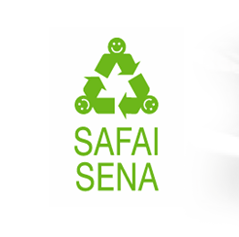
Picking trash is a narrow window of economic opportunity that provides a meager income for Manwara Begum and her family. An opportunity to make ends meet, an opportunity of giving her children a better and more secure future. Manwara, a waste picker, has been in Delhi since her childhood. She chose this work to add to the income of her husband, who is also a waste picker. Recently, Manwara’s dream turned ugly when her innocent children were blamed for a theft that happened in a nearby area. She was unaware that her being waste picker would make her so vulnerable to being accused, harassed, and violently abused. This article by Safai Sena explains the whole story. Also, see comments from Latin American waste pickers and allies in support of Manwara’s family and other waste pickers who face similar situations.
Philippines: Waste pickers are getting organized! (Philippines – July 2013)
“The government should uphold pro-poor projects and legislations that will improve occupational health and safety of waste pickers, secure their employment..,” said Thomas Kellenberger of the Philippine Island Kids Foundation, one of the supporters of a regional waste pickers’ workshop held in the Philippines at the end of July. In Davao, Philippines, the two-day workshop brought more than 40 people from waste picker groups, NGOs, and government agencies from Davao City, Cagayan de Oro City, General Santos City, and Butuan City. The purpose was to advance waste pickers’ social and legal rights and help the category gain recognition as workers and integrate into waste management systems. On July 24-25, at the University of Cebu – Banilad, more than 50 individuals from community groups and NGOs from Cebu City, Mandaue City and Bacolod City took part in an awareness-raising and consultation workshops. Read the complete article. Check out EcoWaste Coalition’s database on the informal waste sector. In addition, the organization is planning blood sampling to determine the lead levels present in the blood of waste pickers working in and those living in the vicinity of a lead mining activity site in Davao Sanitary Landfill.
Alliance of Indian Waste Pickers: Update from waste pickers in Ujjain (India – June 2013)
DSS, an NGO based in Ujjain, India organized a waste pickers’ convention in June. The organizers reported that the feedback from the participants was very positive. Many said it was the first time they had participated in something like this and it boosted their confidence to have a government official in their midst interacting with them respectfully. They expressed solidarity with one another, and highlighted the need to progress with the organization of waste pickers in Ujjain and to address other issues such as child labor in the sector and anti-encroachment drives by the Municipality. In addition, 25 joint liability groups (savings groups) are now operational, each with five members with bank accounts where money is regularly deposited. Each group has an elected president and secretary that manage the accounts. Loans have also become available in some of the groups. Members are happy that they do not need to borrow from money lenders and others and can approach their own organization and ask for loans as a matter of right.
Latin America
Red Lacre: A week-long meeting in Santiago with waste pickers from 10 countries (Chile – August 2013)
A message from Red Lacre to delegates of the 17 countries that are members of Red Lacre (Latin American network of waste pickers): On August 31st, the Latin American Waste Pickers’ Network wrapped up a week of meetings and activities held in Santiago, Chile (Aug. 25-31). The final activity consisted of a visit to informal recyclers of the dumpsite known as Vertedero Los Molles, in Valparaíso. Ending the busy week with our brothers and sisters at the dumpsite filled us with emotion and reaffirmed our commitment to dignity and the dreams of our union. It was a long and intense week. The 18 delegates present at the reunion shared every moment together, from breakfast to dinner, and from marches to downtown Santiago. We shared our worries, ideas and proposals, laughter, and exhaustion. At a time when Red Lacre seemed out of sorts, our purpose confused, we have taken on the commitment to continue forward together, with new energy towards collaboration, and respect for what we have built together: Red Lacre. Red Lacre’s press release (in Spanish).
Petition to support El Álamo Cooperative in Buenos Aires (Argentina- August 2013)
El Alamo is made up of 60 members who recycle a total of 200 tons per month, keeping these recyclables from going to the landfill. The government of Buenos Aires is planning on building an underground tunnel that would reduce the size of El Alamo Cooperative and would make it impossible for the waste pickers to continue working there. Given the social and environmental service that the cooperative performs, its members ask that the government relocate the cooperative to Av. de los Constituyentes 6259/71, a government-owned building. Please add your signature to the petition created by members of El Alamo Cooperative.
Petition from GAIA to stop the intimidation of a Mexican social and environmental activist (Mexico – August 2013)
Jorge Tadeo Vargas Juvera, residing in the State of Mexico, has provided support, technical advice and information to communities in the states of Mexico and Hidalgo around the socio-environmental impacts of waste incineration in cement kilns and on community-based alternatives for waste management. For about four months, Jorge Tadeo has received indirect signals and then a telephone threat that made it clear that he is being watched by people who have an interest in the cessation of his community work. Recently, Tadeo has received threats such as phone calls in the middle of the night. Join us by signing this letter to Mexican authorities requesting protection for Jorge Tadeo Vargas, an activist who struggles peacefully for environmental and social justice from the territories.
Video: “Catador”: a documentary about dumpsite workers in Rio (Brazil- August 2013)
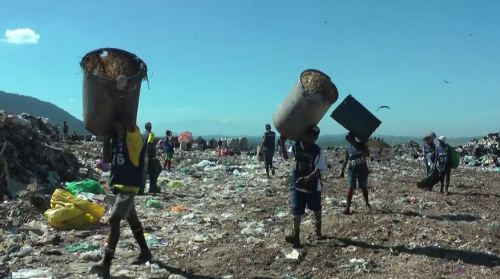
An image from the documentary “Catador” about the closure of the Gericinó dumpsite in Rio de Janeiro.
“Catador” is a documentary that a team of American journalism students made about the struggle of the organized waste pickers of the Gericinó landfill, outside of the city of Rio de Janeiro, Brazil. 246 waste pickers work on the landfill and the waste pickers’ cooperative, Coopgericinó is working hard before its closure to make sure that the waste pickers who will be displaced will be properly compensated and integrated into a regional recycling center once it’s closed. Watch “Catador” (in Portuguese with English subtitles).
Video: Chronicles of a Fight for Inclusion, Part 3: Si Se Puede (Colombia- August 2013)
Waste pickers have found that collective action in defense of their rights and livelihoods is an effective solution to transforming the difficult working conditions, discrimination and harassment they face. Collectively they can make their contributions to society, government, industry, and to each other known: from reintroducing recyclable materials to the productive cycle, preventing waste from being buried in landfills, and saving municipalities huge costs. This video was originally launched at a national workshop aimed at exploring the possibility of replicating in other cities the experience in Bogota, where waste pickers´ inclusion was mandated by the Constitutional Court. This workshop took place on July 24th at the General Assembly of the Asociación Nacional de Recicladores (ANR). Watch the video.
Dominican Republic hosted its first conference of waste pickers (Dominican Republic – July 2013)
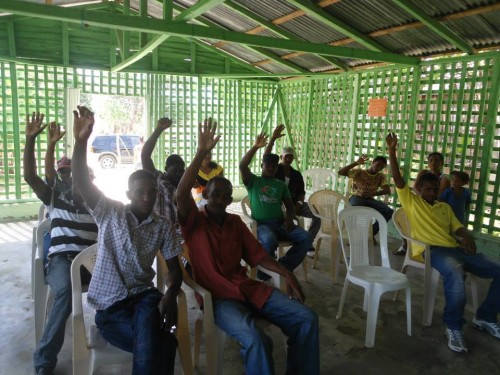
Members of the association of waste pickers of the Dominican Republic raise their hands in a vote during the conference. (Photo: Felipe Rosario)
Congratulations to the association of waste pickers of the Mao landfill, in the Dominican Republic, for hosting their first assembly on July 21st. “We continue to move forward towards the creation of the National Movement of Waste Pickers of the Dominican Republic,” the Asociación de los Recicladores del Ecoparque Rafey said on their facebook page. See their facebook post with photos.
MTE: 48 cartoneros take a 40-hour bus ride to meet the new pope in Rio (Brazil – July 2013)
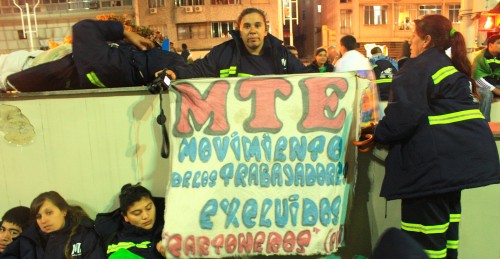
The Movement of Excluded Workers (MTE) at a vigil during their visit to Rio to see the pope. (Photo: Deia de Brito)
In July, 48 waste pickers with the Movimiento de Trabajadores Excluidos (MTE) traveled by bus from Buenos Aires, Argentina to Rio de Janeiro, Brazil to meet the newly elected Pope Francis, from Argentina. He had invited the delegation of young cartoneros to sit near him and meet him during activities of World Youth Week, a gathering of young Catholics from around the world. I had the chance to talk to some of the young cartoneros one night during the closing Mass and vigil. Check out the article with photos.
Video: “Clasificadores: A few experiences of working with waste in Uruguay” (Uruguay- July 2013)
This video called “Clasificadores: Algunas experiencias del trabajo con residuos en Uruguay” was part of a competition called “Comunidades con voz” (“communities with voice”) in 2011 that had as its objective financing projects that gave visibility to vulnerable social groups in Uruguay, using media. The project “Reciclar, un nuevo comienzo” (“Recycling: a new beginning”), was one of the winners and their proposal was to share the work that waste pickers do in Uruguay. The goal of the documentary is to show the waste pickers’ work and living conditions as well as their demands. Watch “Clasificadores”.
UCRUS: the 5th march against privatization in Uruguay (Uruguay – July 2013)

A Montevideo bill proposed for January 2014 would create “exclusionary zones” where waste pickers and their horse-drawn carts would not be allowed to enter. The bill involves not only the exclusion of waste pickers but the privatization of recyclables to be accessible only to so-called “authorized” parties. Many waste pickers, known as clasificadores in Uruguay, who work with carts have had them confiscated for years now, and have also been barred from certain neighborhoods. They have already been feeling the impact of privatization and exclusion for a long time. Every day they have access to fewer goods. UCRUS began mobilizing to demand a stop to this process — visiting neighborhoods where many waste pickers live, presenting its demands and proposals to government agencies and political parties. But when UCRUS didn’t receive any response to its complaints, it organized the 5th march with horse-drawn carts on July 26 against the privatization bill. Press release in Spanish
On August 5th, the Coordinadora Pro Clasificadores (CPC) circulated a press release in support of the clasificadores, saying in short that the government should look closely at social impacts of these measures and that instead of prohibiting carts and horses used for recycling collection, they should do a study on waste pickers and offer a dignified work option with decent social and environmental conditions. Coordinadora Pro Clasificadores: Circulación de Carros con caballos en Montevideo (full release in Spanish).
Federation of Waste Pickers of Argentina: No more anti-cartonero policies! (Argentina – July 2013)
“We are recycling less and less,” reads the statement calling cartoneros of Buenos Aires to action against the government’s failure to comply with its social and environmental responsibilities. Far from following its Zero Waste laws and its agreements with waste pickers’ cooperatives, the city government has installed 100 black anti-cartonero containers around the city. “In this way, neighbors only have one way of disposing of their waste: throw everything mixed together in the container.” The materials in the new containers are being stolen from the cartoneros, mixed together, and not recycled. Before, the cartoneros picked up directly from neighbors’ doorsteps bags that they’d separated but now, they must dig through the containers. It’s among a list of other complaints: daycare centers that don’t open, uniforms and machinery that never arrive, green centers that are inaugurated but never begin to operate, social projects that don’t reach everyone. “We only ask that you follow the law!” the cartoneros demand. On July 11, they marched to the city department of the environment. The press release in Spanish.
MNCR: Waste pickers in Barueri, São Paulo, are fighting incineration in their city (Brazil – July 2013)
Waste pickers and residents of a neighborhood in Barueri, São Paulo, marched against the city’s proposal to build a waste incinerator. They marched to the municipal government building where a forum on solid waste management solutions was in action. Present at the forum was a representative of FOXX URE, the company that will run the incinerator. Protestors booed he and municipal leaders that support the plan. The government of Barueri plans on burning 97 percent of its waste and recycling only 3 percent, as well as burning waste from nearby cities. The proposal runs against the National Waste Policy, which gives priority to reducing and recycling with social inclusion, as well as federal and UN environmental policies. Residents have already gathered more than 2,000 signatures against the construction of the incinerator and have distributed information to neighbors explaining the environmental and health damage caused by incinerators. Article with photos in (Portuguese).
MNCR: Petition In support of a bill against incineration in the state of Minas Gerais (Brazil – July 2013)
This petition — a joint effort of the MNCR (National waste pickers’ movement of Brazil) along with other social movements and groups — supports a bill that would stop to incineration of solid waste in the state Minas Gerais, Brazil. If this bill were approved it would support recycling collection based on solidarity — a system developed and pioneered by the waste pickers. Sign the petition. At the bottom of this MNCR press release, you can access a PDF version to print out and gather physical signatures.
MNCR: Cataforte meeting: Strengthening waste pickers’ cooperatives around Brazil (Brazil- July 2013)
The National Movement of Brazilian Waste Pickers (MNCR) participated on July 31st in the launch of the third edition of Cataforte, a federal program whose purpose is to strengthen waste pickers’ organizations. The objective is the restructuring of waste pickers’ networks and associations so that these solidary networks become more capable of performing recycling service for municipalities, as well as to become involved in reverse logistics (producer responsibility) and begin to commercialize their recyclable materials, with the goal of reaching 35 networks. Alex Cardoso, a representative of the MNCR, said at the event, “Waste pickers should maintain their rights to work in the streets, but if today they are working precariously in the streets, this is a reflection of the partnership municipalities have with waste pickers. The tendency is that through valuing and structuring [waste pickers’ associations], waste pickers will continue to work in the streets but in a more organized way.”
Policy dialogues in Bogotá, Colombia: Informal recycling and social innovation (Colombia- July 2013)
In July, two policy dialogues with the theme of informal recycling and social innovation were held in Bogotá, Colombia. The dialogues came only a few months after a long-awaited victory for the city’s waste pickers and citizens. In light of Bogotá’s recent success with this socially inclusive model, the policy dialogues this July brought in academics, government leaders, waste pickers, and organizations to discuss the Bogotá case or others from around the world. The event was organized by WIEGO in Latin America. Watch some of the recorded sessions. See presentations by Nohra Padilla of the Association of Recyclers of Bogotá (ARB) and Martha Chen of WIEGO.
Tweet


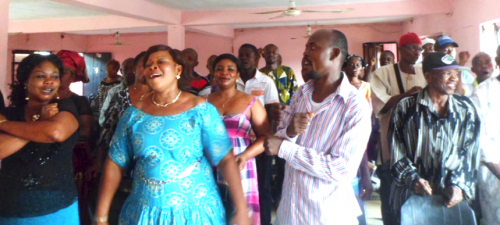
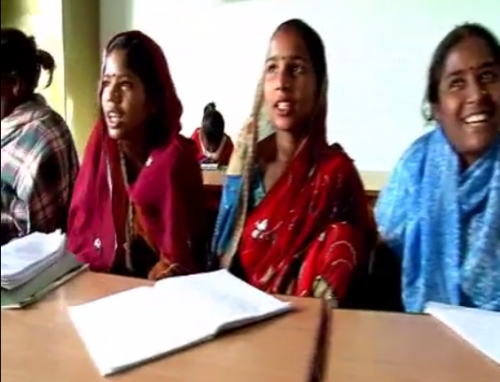
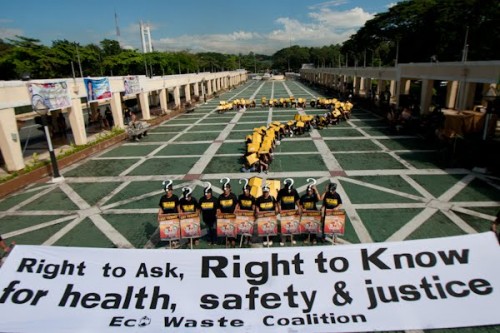
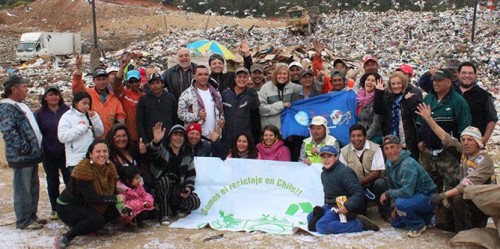
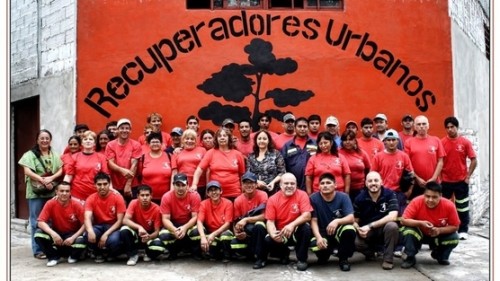
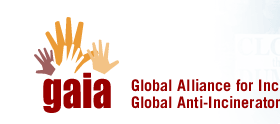
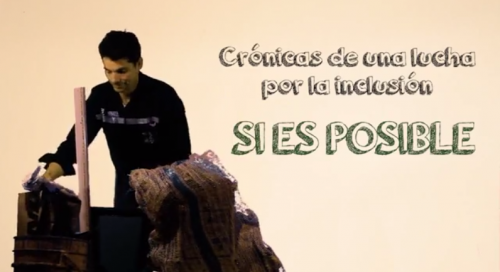
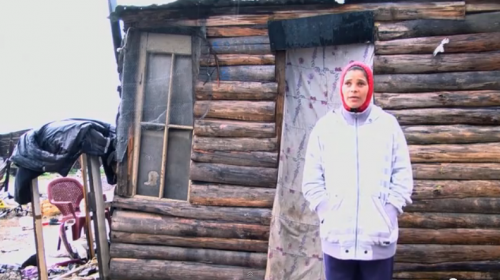

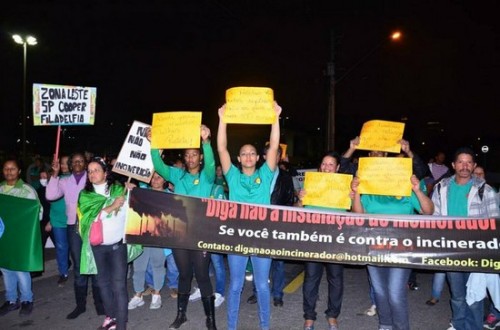
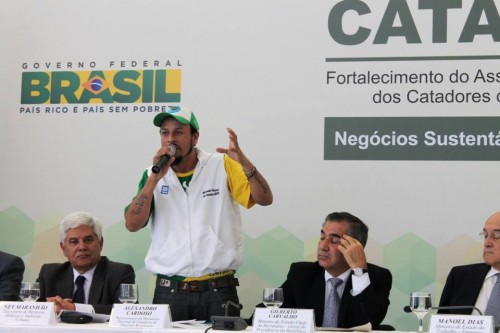
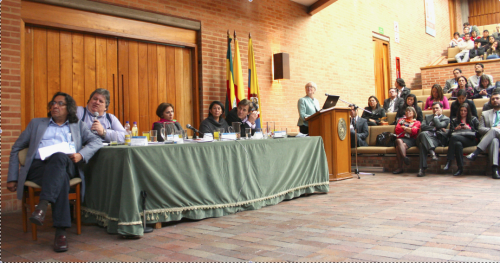
Leave a comment